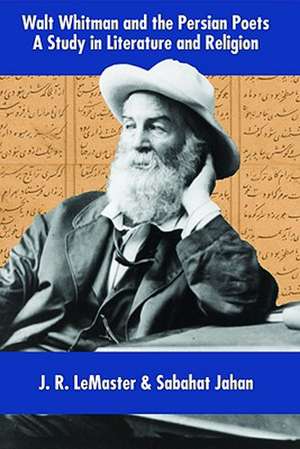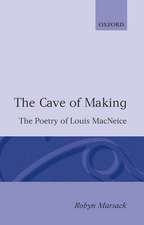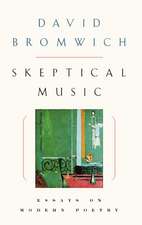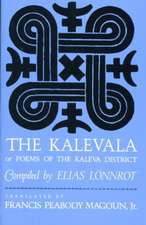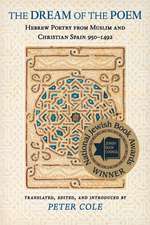Walt Whitman & the Persian Poets
Autor J.R. LeMaster, Sabahat Jahanen Limba Engleză Hardback – 3 mar 2010
Preț: 597.22 lei
Preț vechi: 764.36 lei
-22% Nou
Puncte Express: 896
Preț estimativ în valută:
114.31€ • 124.21$ • 96.09£
114.31€ • 124.21$ • 96.09£
Carte disponibilă
Livrare economică 31 martie-14 aprilie
Preluare comenzi: 021 569.72.76
Specificații
ISBN-13: 9781588140623
ISBN-10: 1588140628
Pagini: 227
Dimensiuni: 162 x 235 x 20 mm
Greutate: 0.45 kg
Editura: IBEX Publishers,U.S.
Locul publicării:United States
ISBN-10: 1588140628
Pagini: 227
Dimensiuni: 162 x 235 x 20 mm
Greutate: 0.45 kg
Editura: IBEX Publishers,U.S.
Locul publicării:United States
Cuprins
Foreword; Sources; Whitman & the Persian Poets: An Introduction; Whitman as Poet-Prophet; Rumi & Hafez as Poet-Prophets; Whitman: Man's Divinity & the Mystic Poet's Egotism; Rumi & Hafez: Man's Divinity & the Mystic Poet's Egotism; Whitman & the Persian Poets: Life, Death & Immortality; Works Cited; Index.
